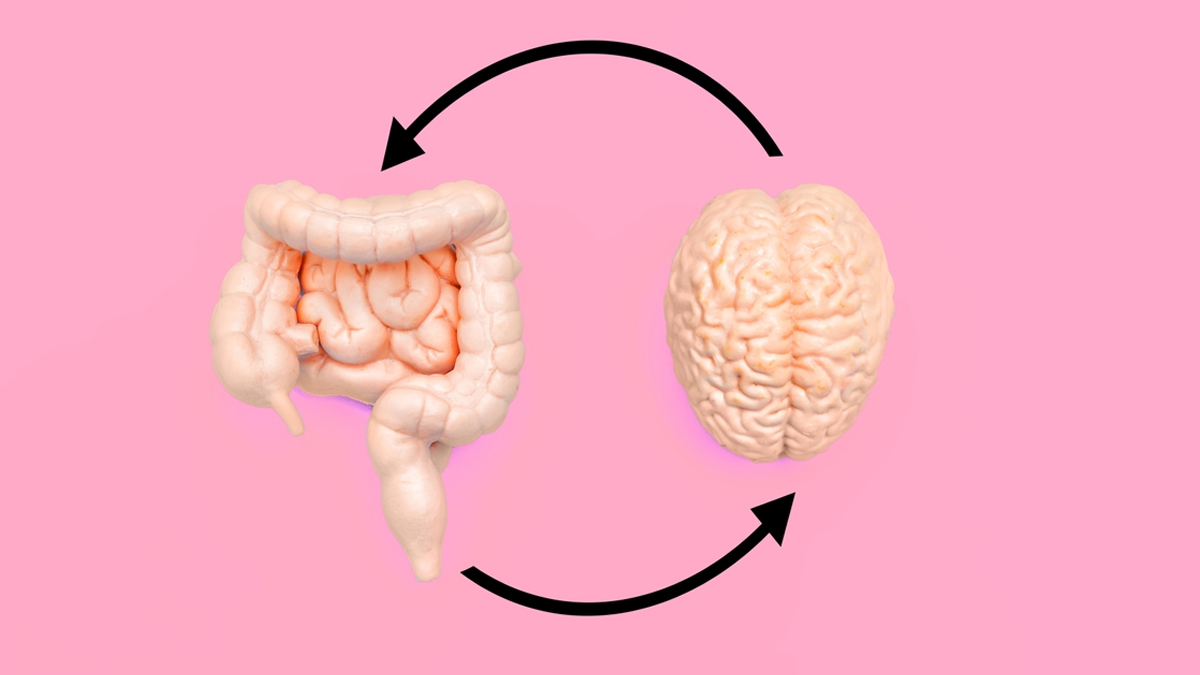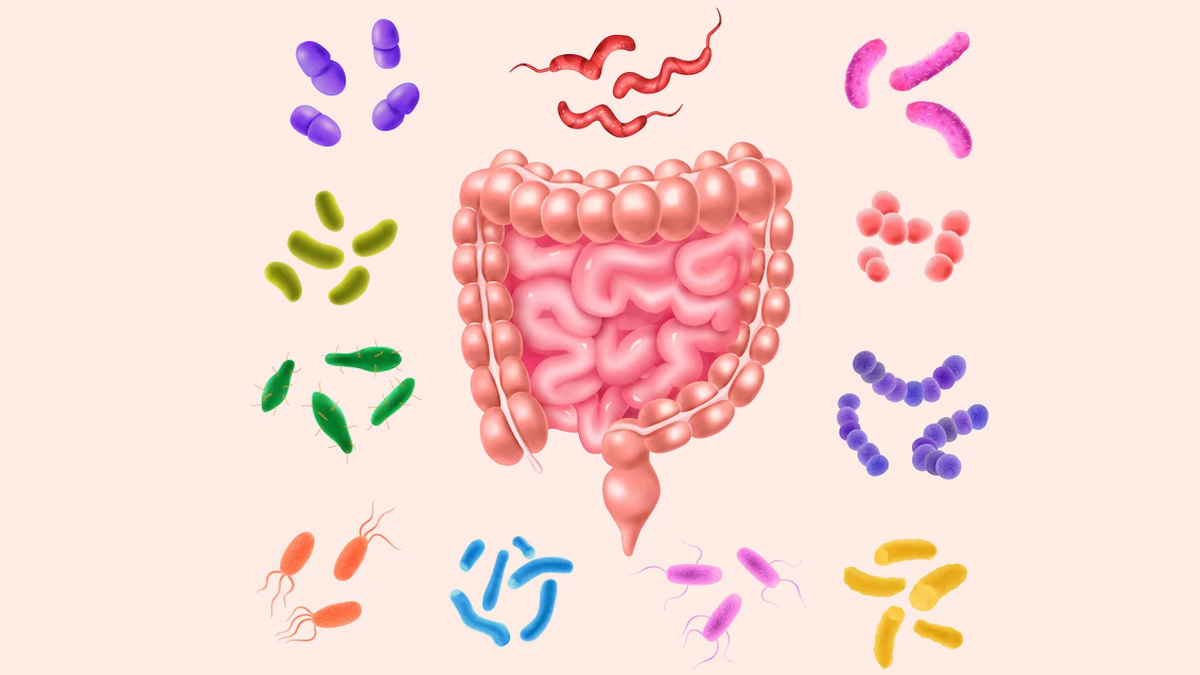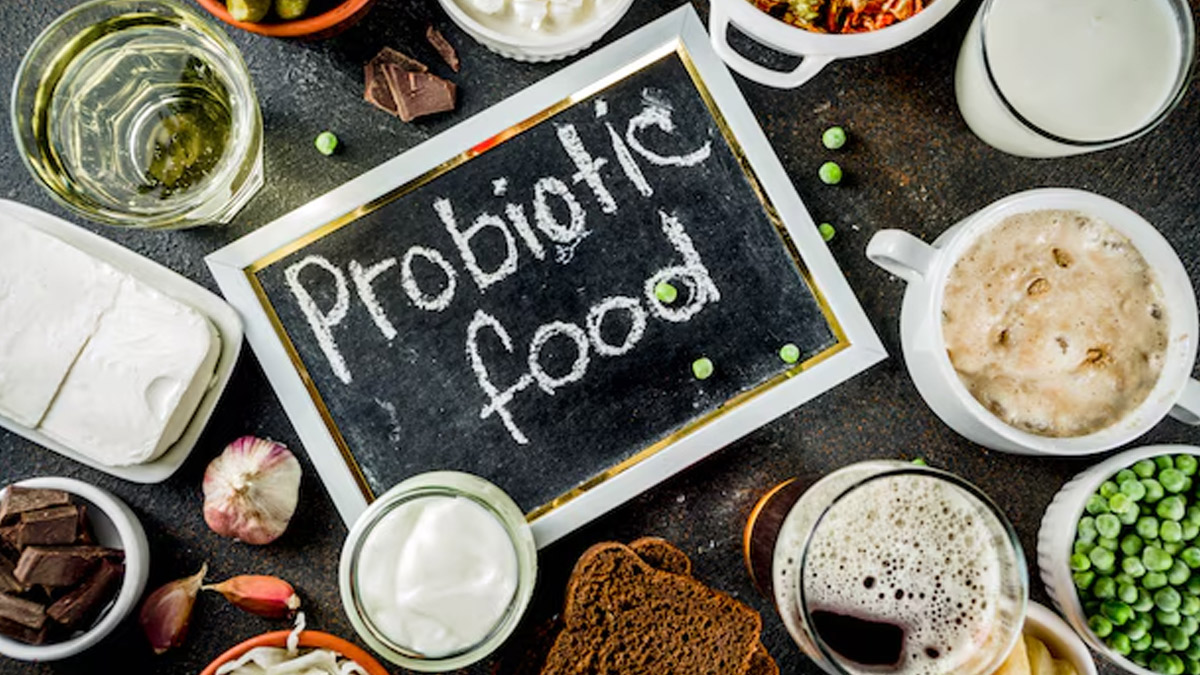
Have you ever felt butterflies in your stomach before a big event or noticed how stress can mess with your digestion? It’s not just in your head; it’s your gut and brain communicating. Our digestive system and mental health are intricately linked, and when one is out of balance, the other often suffers too. This connection is a key factor in understanding how gut health can impact your mental well-being. We spoke to Dr Meghraj Ingle, Director and Senior Consultant Gastroenterology, Gleneagles Hospitals, Parel, Mumbai, who explained how gut issues might contribute to anxiety and what steps you can take to feel better.
Table of Content:-
The Gut-Brain Connection

The gut and brain share a close relationship, constantly communicating through a complex network of nerves and chemicals in what is commonly referred to as the 'gut-brain axis.' Dr Ingle explained, “This communication is a two-way process. When your gut isn’t functioning optimally, it sends stress signals to your brain, which can manifest as anxiety.”
According to Harvard Health Publishing, the gut is sensitive to our emotions. Feelings like anger, anxiety, sadness, and happiness can all cause symptoms in the stomach. This intricate connection underscores the importance of maintaining gut health for overall mental well-being.
Role of Gut Health Problems in Anxiety
Conditions like Irritable Bowel Syndrome (IBS) and dysbiosis (a type of imbalanced gut bacteria) can directly affect mood and mental health. These issues can cause inflammation and disrupt the brain-gut communication pathways, which often leads to increased feelings of anxiety. Such disruptions underline why gut health should be a priority when managing anxiety.
Also Read: Leaky Gut Syndrome: Not A Recognised Medical Condition, But Here’s How To Manage It
Gut Bacteria: The Key Players in Mental Health

Your gut houses trillions of bacteria, which are critical in producing chemicals like serotonin, often dubbed the 'happiness hormone.' “These chemicals are vital for keeping your brain healthy. An imbalance in gut bacteria can lead to reduced production of serotonin, which may exacerbate anxiety and stress. Maintaining a healthy balance of gut bacteria is crucial for both mental and physical health,” added Dr Ingle.
Common Gut Issues Linked to Anxiety
Several gut-related conditions have been closely associated with anxiety. “Among them are Gastroesophageal Reflux Disease (GERD), constipation, IBS, bloating, dysbiosis, and leaky gut syndrome,” listed Dr Ingle. These conditions not only cause discomfort but also contribute to chronic inflammation, disrupting the brain’s signalling mechanisms and potentially worsening anxiety over time.
The Vicious Cycle of Anxiety and Gut Problems
The relationship between gut health and anxiety is a two-way street. “While gut issues can trigger anxiety, excessive stress and anxiety can also lead to gut problems like constipation, bloating, or Irritable Bowel Disease (IBD). This creates a cyclical pattern where one condition perpetuates the other, making it crucial to address both aspects simultaneously,” explained Dr Ingle.
Also Read: Ever Feel Your 'Gut Instinct'? Know How Your Microbiome Literally Shapes Your Mood
Improving Gut Health to Alleviate Anxiety

Gut health is profoundly affected by your diet. A poor diet can lead to the production of bad gut bacteria. They can increase inflammation as well as stress chemicals in your body. This can make you more anxious while worsening your symptoms.
Improving your gut health can significantly reduce anxiety symptoms. Incorporating probiotics and fibre-rich foods into your diet can help cultivate good bacteria in your gut, reducing inflammation and restoring the balance of the gut-brain axis. According to a 2017 study, probiotics can help restore a healthy balance of bacteria in the gut, making them potentially useful in treating and preventing anxiety and depression.
Also, focus on foods like yoghurt kefir, fermented vegetables, and whole grains to promote gut health, and ease anxiety, advised Dr Ingle.
Effective Treatments for Gut-Related Anxiety
Addressing gut-related anxiety often requires a multifaceted approach. Dietary modifications, increased intake of probiotics, stress management techniques, and, in some cases, therapy can be highly effective. Personalised treatment plans, developed in consultation with healthcare professionals are often the best way to tackle gut-related anxiety.
Identifying Gut-Related Anxiety
How can you tell if your anxiety stems from gut health issues? According to Dr Ingle, a strong clue is the presence of digestive symptoms like bloating, constipation, IBS, or dysentery alongside your anxiety. If these symptoms worsen your anxiety, it might be time to consult a healthcare professional to assess whether your gut is the root cause.
[Disclaimer: This article contains information provided by an expert and is for informational purposes only. Hence, we advise you to consult your professional if you are dealing with any health issues to avoid complications.]
Also watch this video
How we keep this article up to date:
We work with experts and keep a close eye on the latest in health and wellness. Whenever there is a new research or helpful information, we update our articles with accurate and useful advice.
Current Version